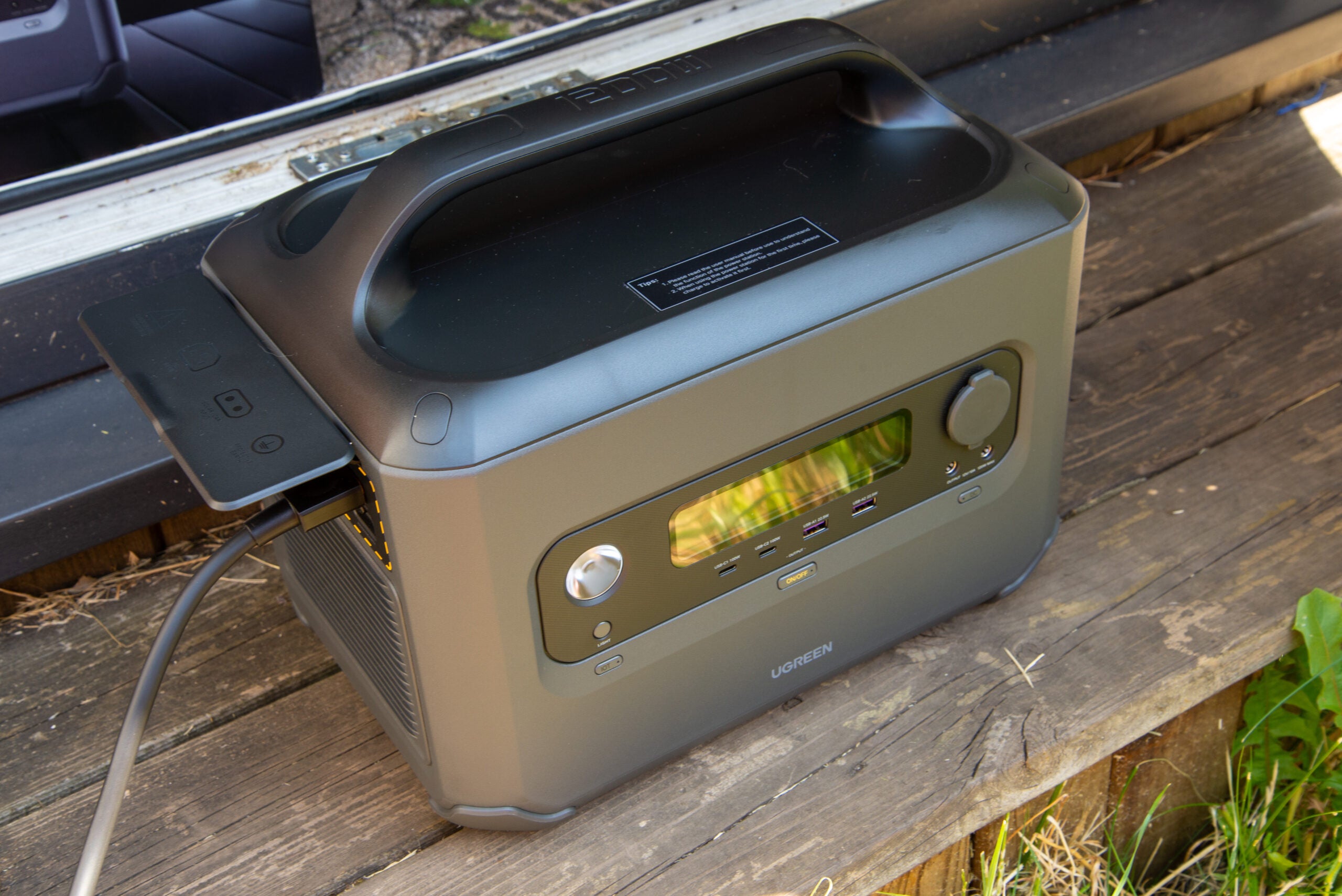Bluetti AC60 Review
An efficient and expandable power station.
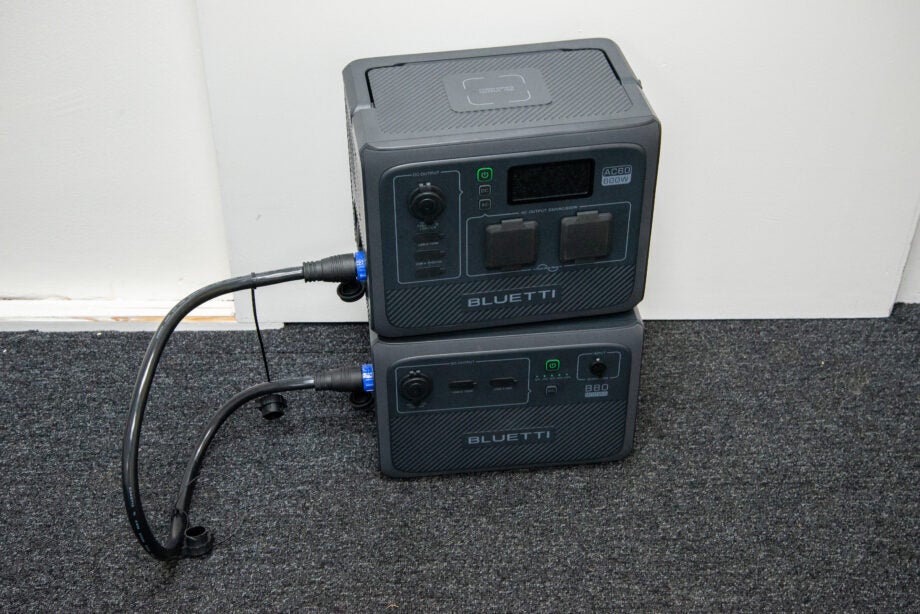

Verdict
A relatively compact system, the Bluetti AC60 balances price and capacity well, providing all the outputs you’ll need, including a wireless charger. It proved efficient in my tests, able to cope with fairly high demand. If you need more capacity, then additional batteries can be added. A slightly high cost per kWh for storage is the only minor downside, so those that need more power more frequently may be better off buying a higher capacity system.
Pros
- Expandable power
- IP65 rating
- High power output
Cons
- Main unit has a relatively small battery
Key Features
- CapacityThe main unit has a capacity of 403Wh, and up to two 806Wh batteries can be added.
- OutputMaximum output is 600W on standard mode and up to 1200W with Power Lifting.
Introduction
Power stations have become more and more popular, with recent trends seeing ever-increasing capacities and physical sizes.
The Bluetti AC60 is more of a return to roots, with a smaller unit that’s easier to carry around, yet the option to expand capacity with additional add-on packs.
Design and features
- Expandable capacity
- Compact and easy to carry
- IP65 rating
One of the first obstacles a power station has to overcome is making it easy enough to move around. Here, Bluetti has done a brilliant job. With its flip-up handle, the Bluetti AC60 can be easily lifted and carried around. It helps that it weighs just 9.1kg – that’s considerably lighter than many other power stations, such as the EcoFlow Delta 2 or Jackery Explorer 1500 Pro.
Part of the reason that the Bluetti AC60 doesn’t weigh as much as the competition is that the main unit has a 403Wh battery. That’s enough to charge an average smartphone 21 times or keep a projector running for around three hours.
That’s a decent amount of power, but if you do need more, then Bluetti also sells the B80 battery pack, which adds 806Wh of power into the mix. Up to two B80 batteries can be added, giving just over 2kWh of power in total.
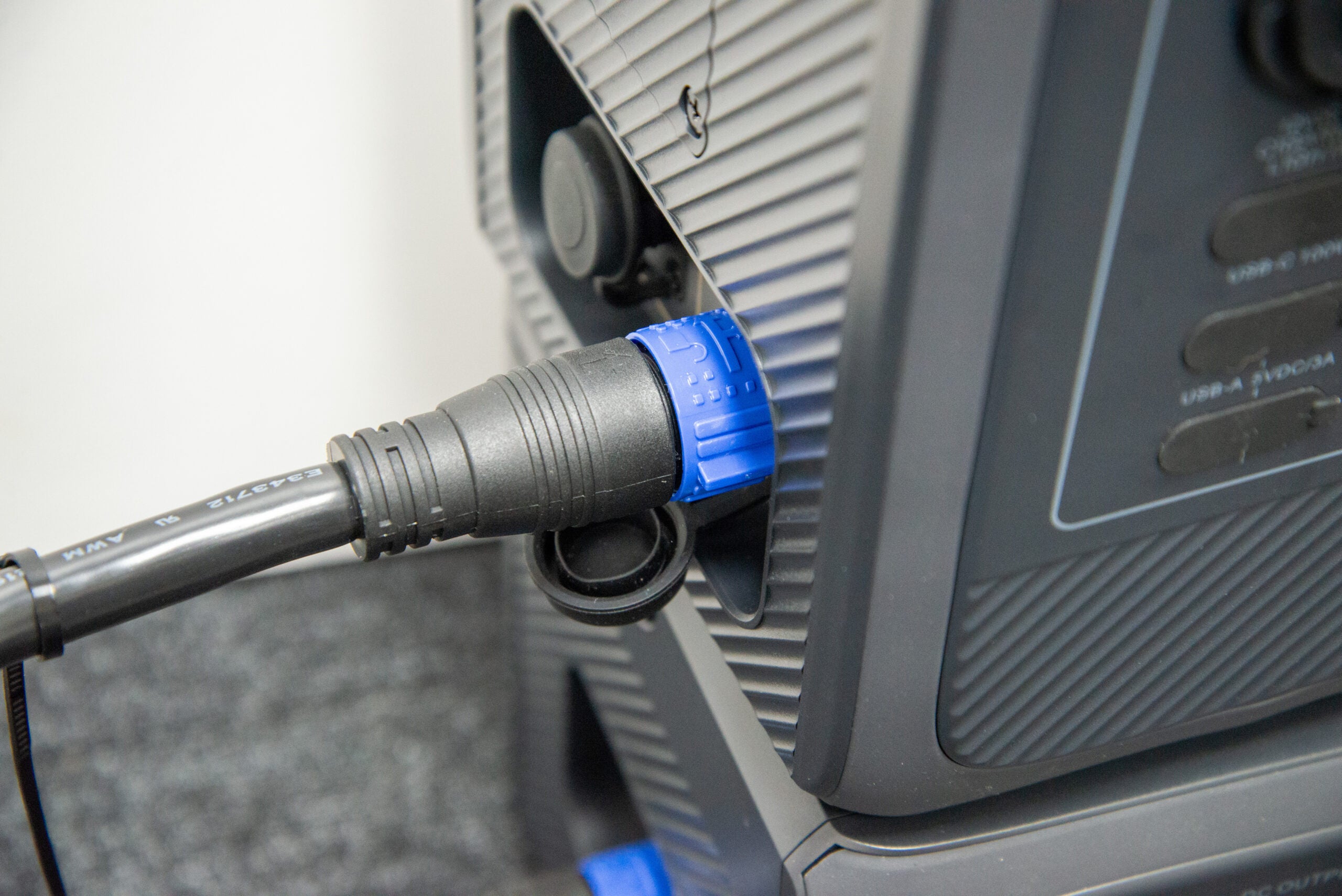
While you can buy higher capacity systems out-of-the-box, the modular way can be a good way to go: you can take the lighter part when you need less power, and the individual components are easier to lift individually.
With the batteries linked up, the LCD on the front of the Bluetti AC60 shows the current total amount of battery left, plus any input and output power.
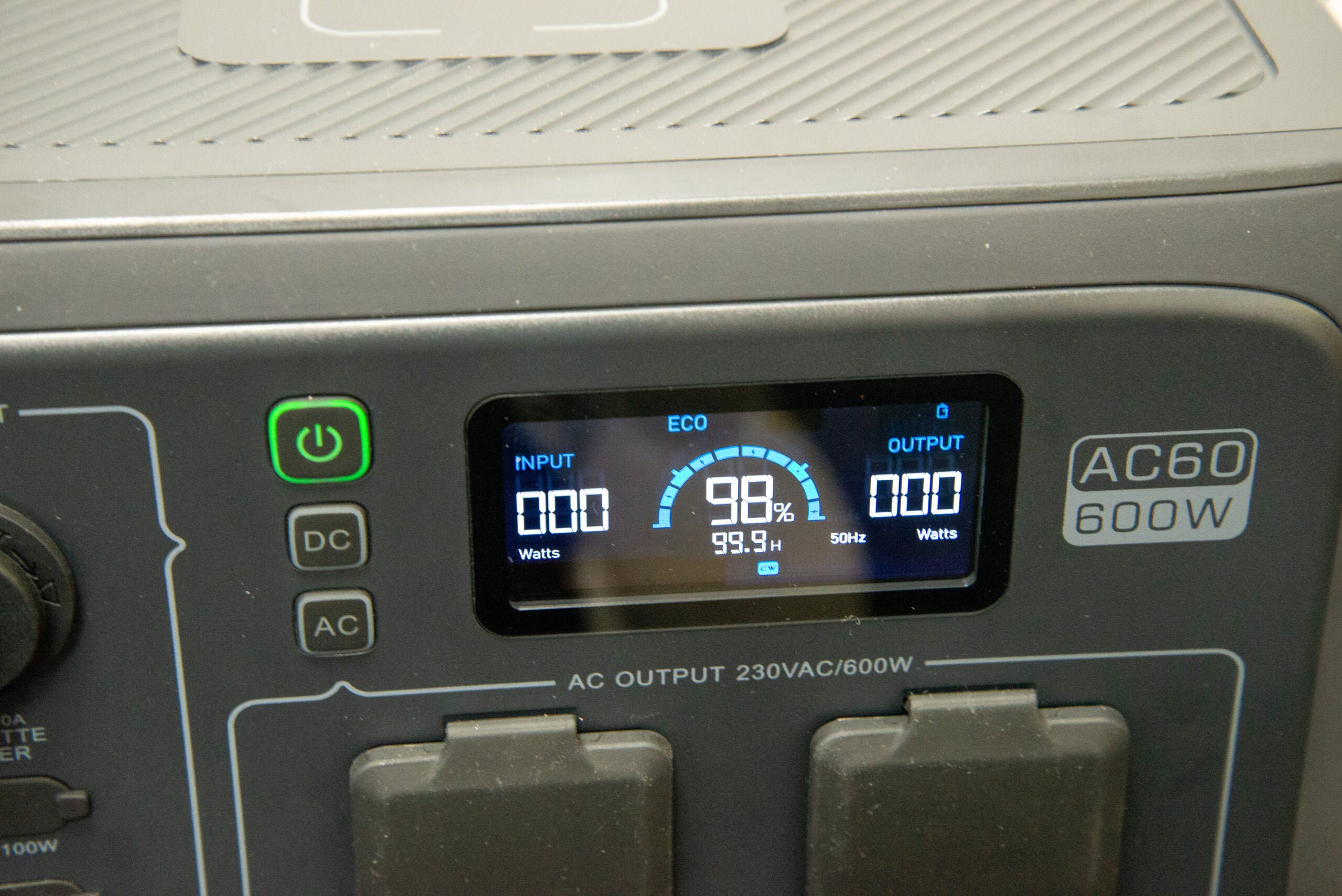
There’s a good range of ports on this battery pack, with two UK plugs, spaced far apart so that you can even connect large adaptors.
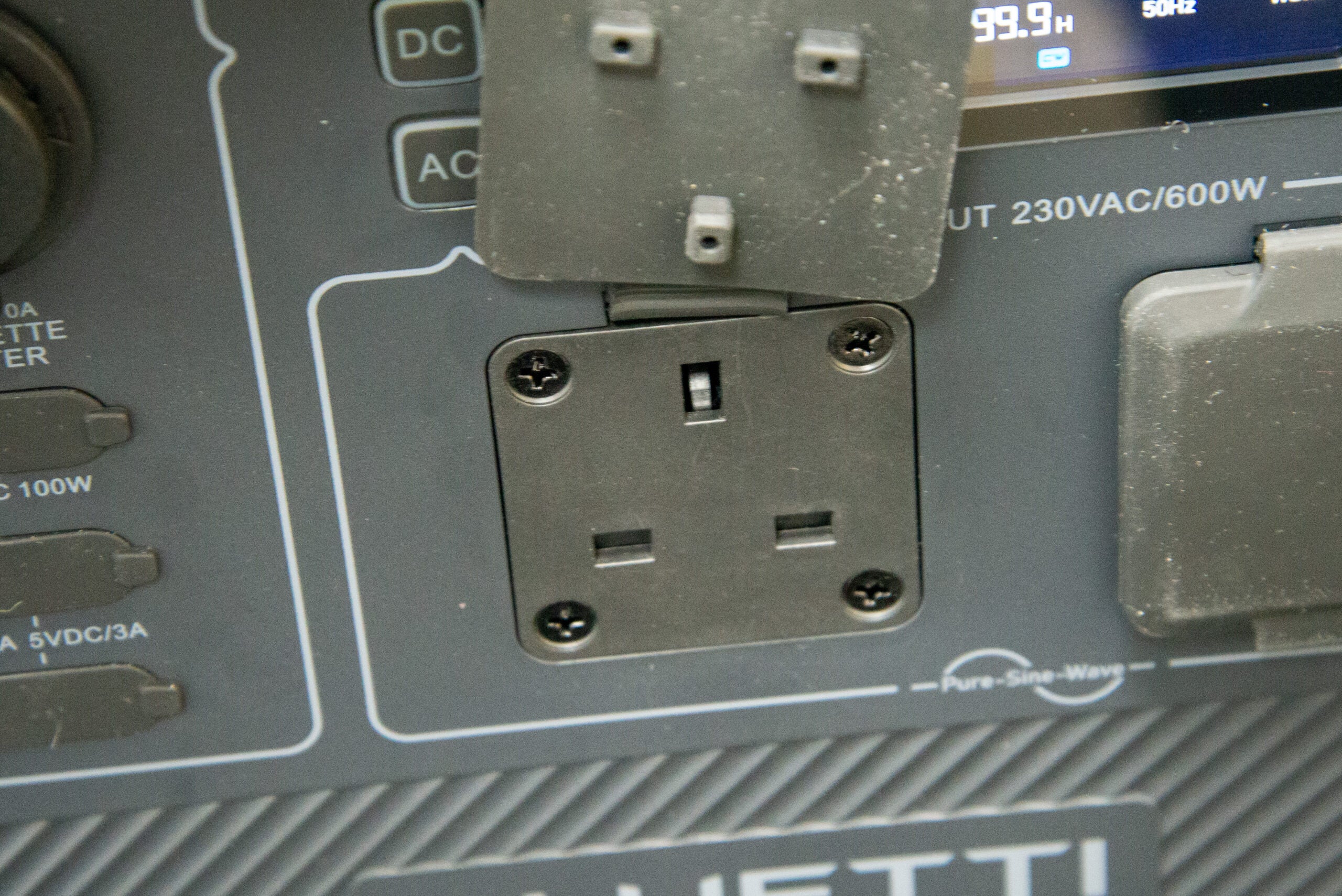
There’s then a USB-C port (100W), dual USB-A ports, plus a 12V car output (called a cigarette lighter here, as though it’s still 1987). Inputs include a kettle lead and a DC input for solar power.
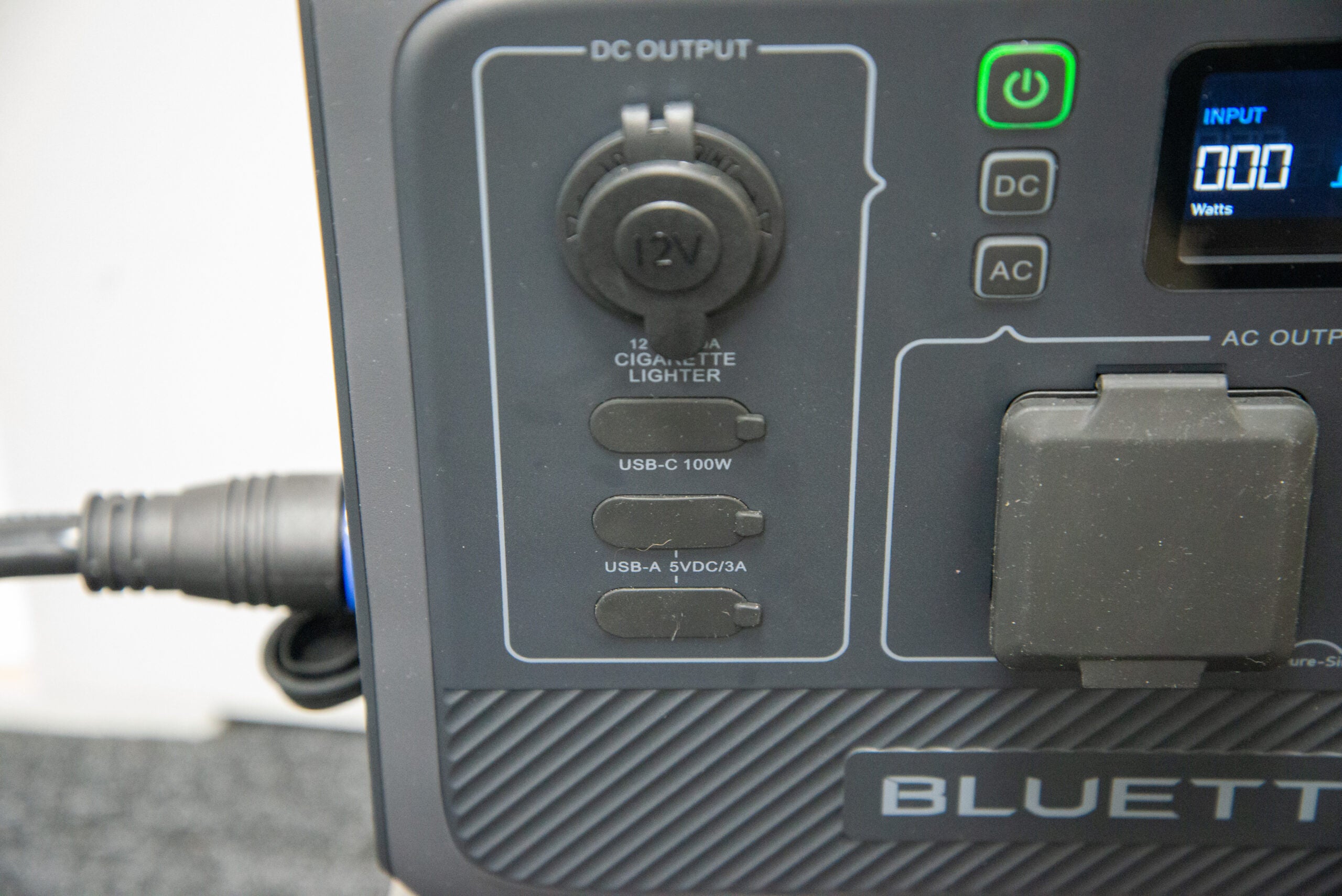
I like the wireless charger on top of the battery, too. Just drop a compatible phone onto it, and you can charge without cables.
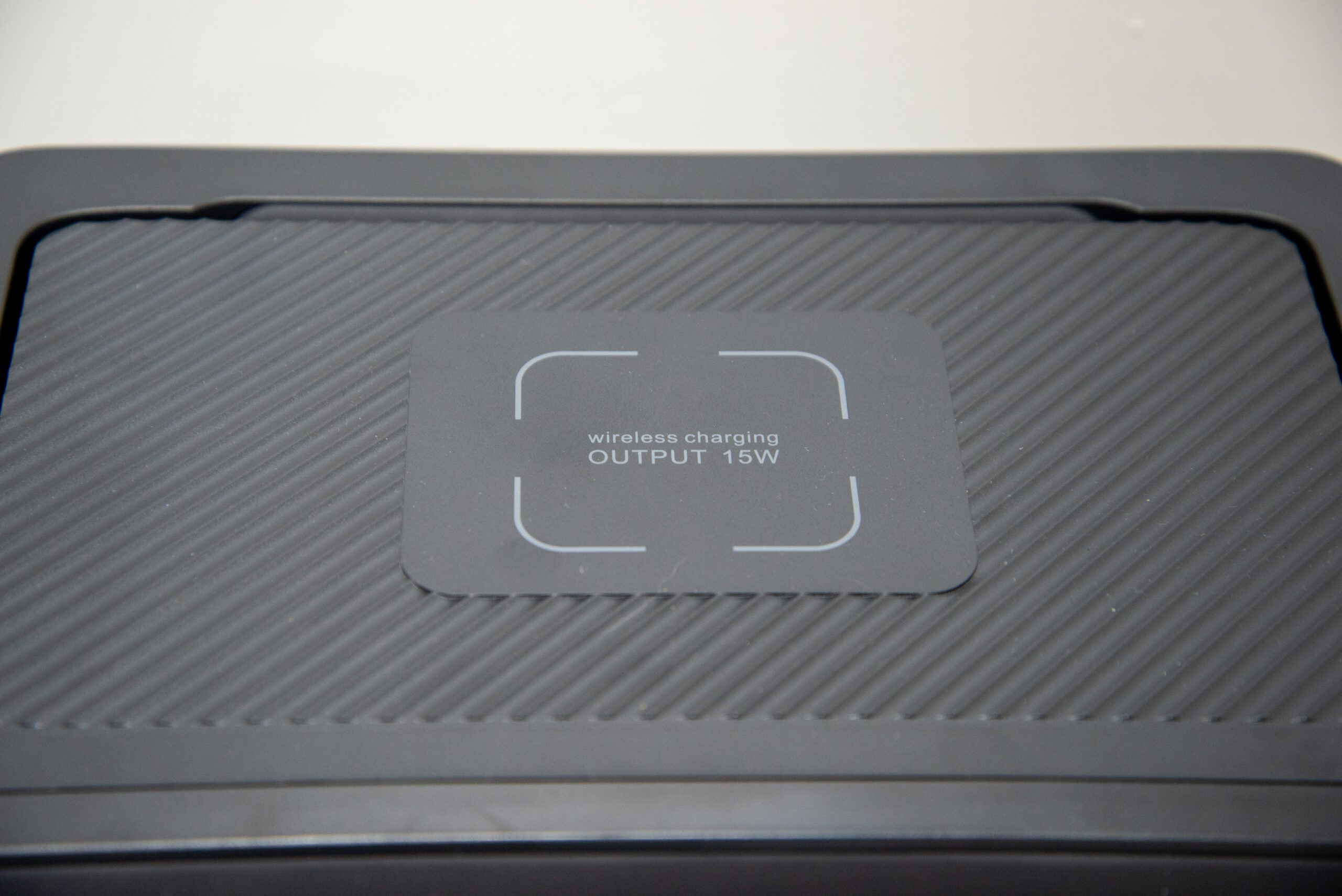
Each B80 battery includes extra DC outputs: car, USB-C and USB-A, which could prove handy if you’ve got a family camping and lots of devices to charge.
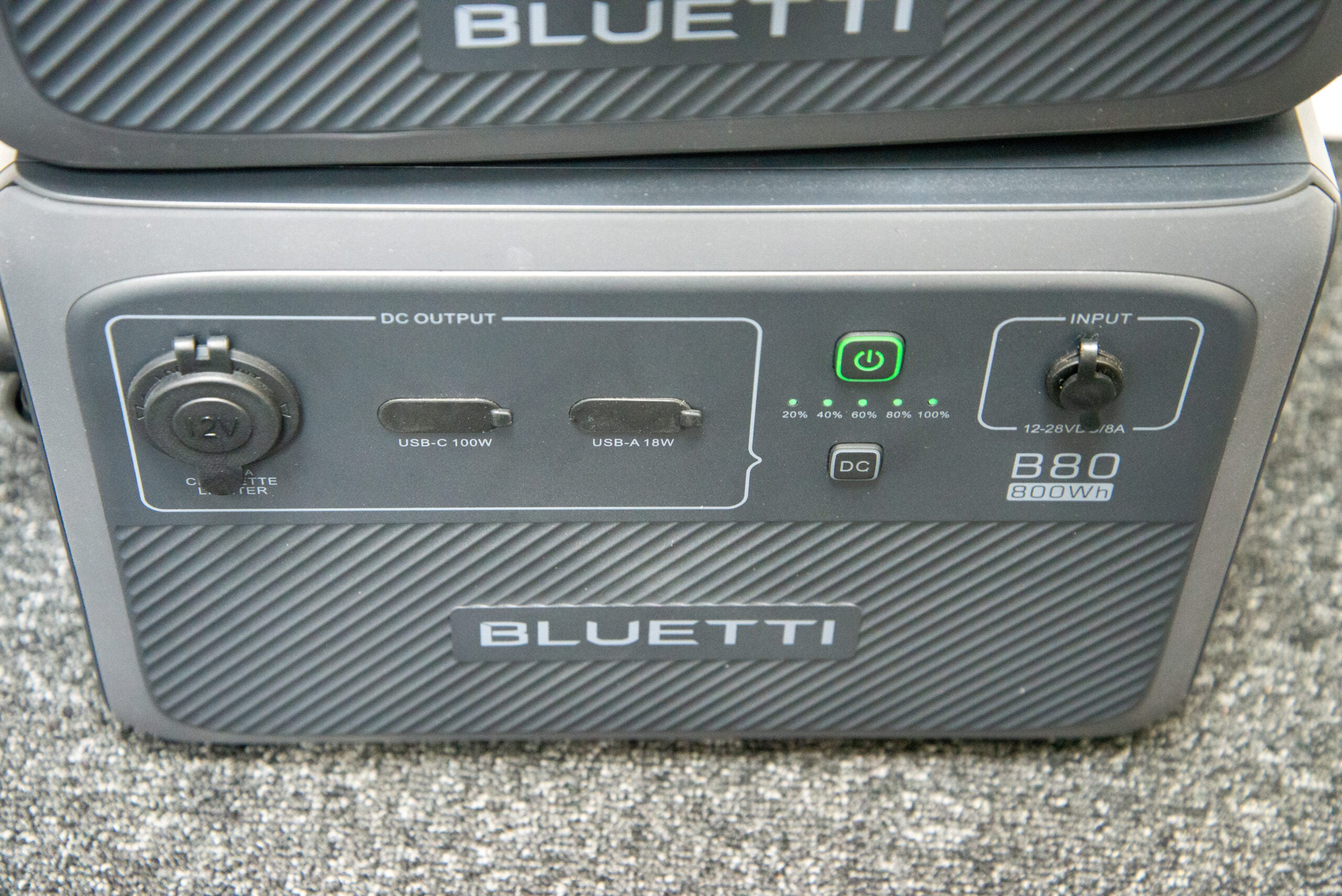
Thanks to the IP65 rating, the system is dust and waterproof, which is great news for use in the great outdoors, particularly if you’re going camping in the great British summer.
Although the battery can largely be controlled via the buttons on the front, it’s also compatible with the Bluetti app, using Bluetooth or Wi-Fi. With the app, the AC and DC outputs can be toggled on and off, and the Power Lifting mode can be turned on. This extends the maximum AC output from 600W to 1200W, so you can power some small heaters and cooking appliances.
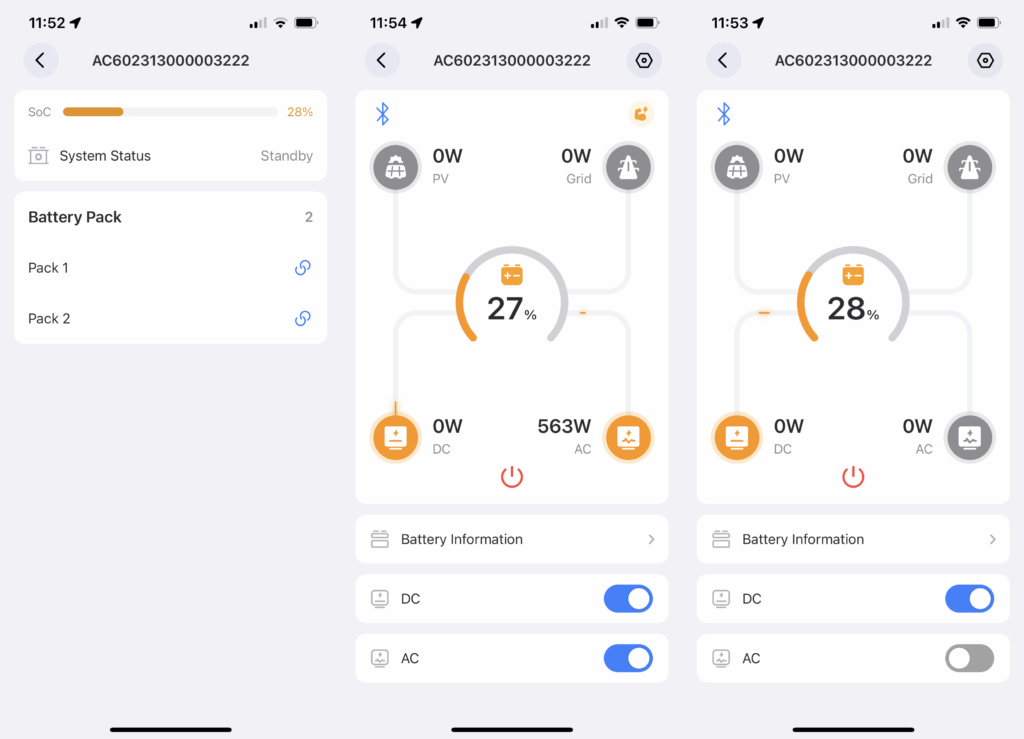
Most power stations can act as an EPS, but the Bluetti AC60 can act as a UPS. The difference is all in the switchover time, with the AC60 moving from mains power to battery power almost instantly. That makes it compatible with computers and even CPAP medical machines.
Charging and solar
- Fast charging
- Efficient charging
Charging of the Bluetti AC60 takes 45 minutes to 80%, with a full charge in just one hour. Add some time on for each battery you’ve got, but the 600W input is fast, so you can even pull the batteries out a short time before you need them and know you can get to a full charge.
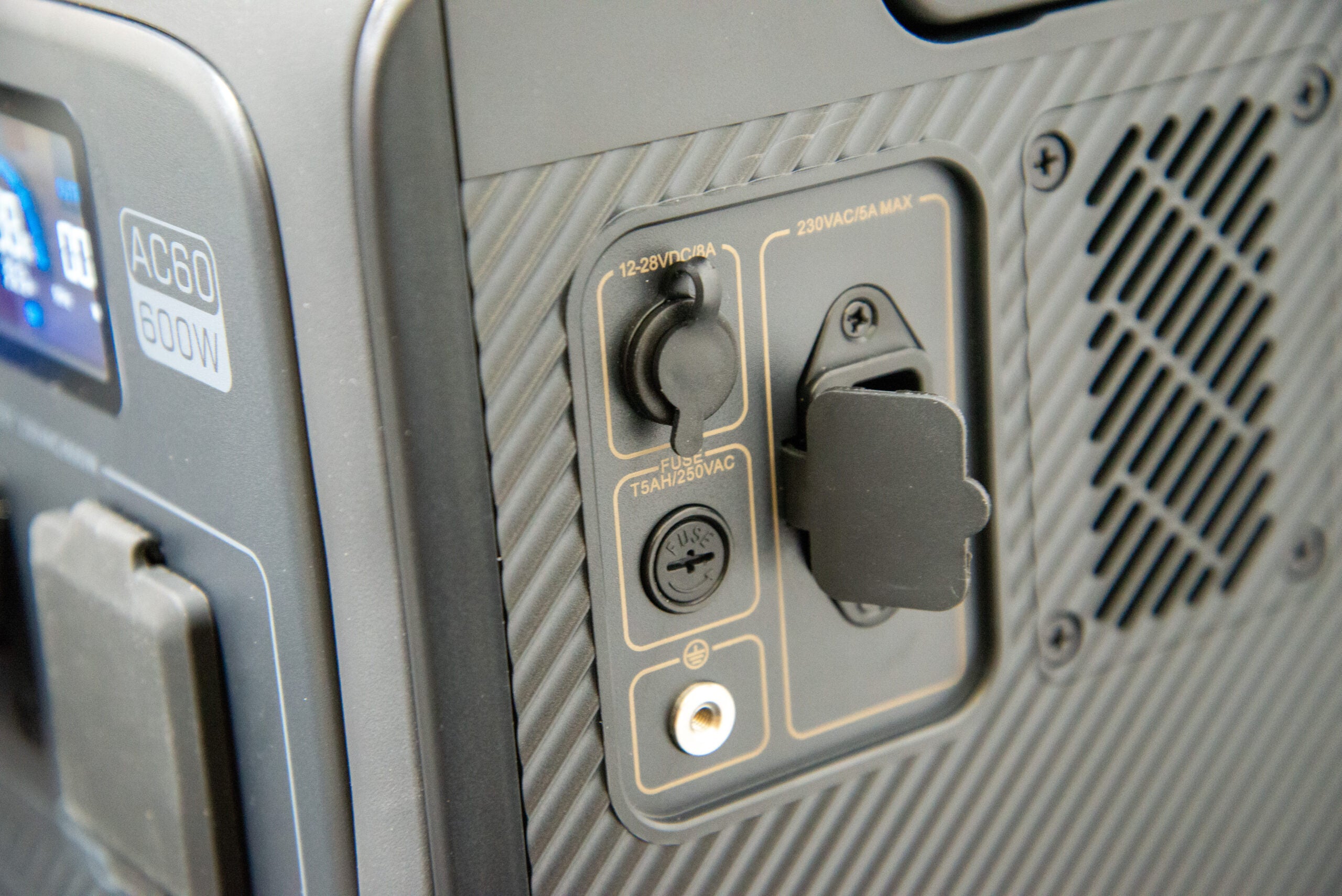
Measuring the output power, I found that it took 446Wh to top up an empty 403Wh battery. That’s pretty efficient (90%), with some power lost due to powering the internal systems and some lost through the inverter.
This battery is compatible with solar panels, taking up to a 200W input. Realistically, 200W of solar panels could bring in up to 135W or so, on a bright sunny day; less than 30W on a cloud covered day.
As with any battery system, solar panels are worth it if you’re going to be off-grid a lot and need some way of getting power. If you’re mostly going from home or have access to a plug, then work out if solar offers value for you.
Performance
- Very efficient on AC
- Good power output
- Long lasting
I tested the Bluetti AC60 with its AC outlet, running a ~500W heater. Draining the battery in full, I found that the Bluetti AC60 output a total of 346Wh of power, fully draining the 403Wh battery. That works out at an efficiency of 85.9%: that’s very high for a system like this. Power is lost through converting DC power from the battery to AC power. If you use DC devices, such as phones and laptops, efficiency will climb.
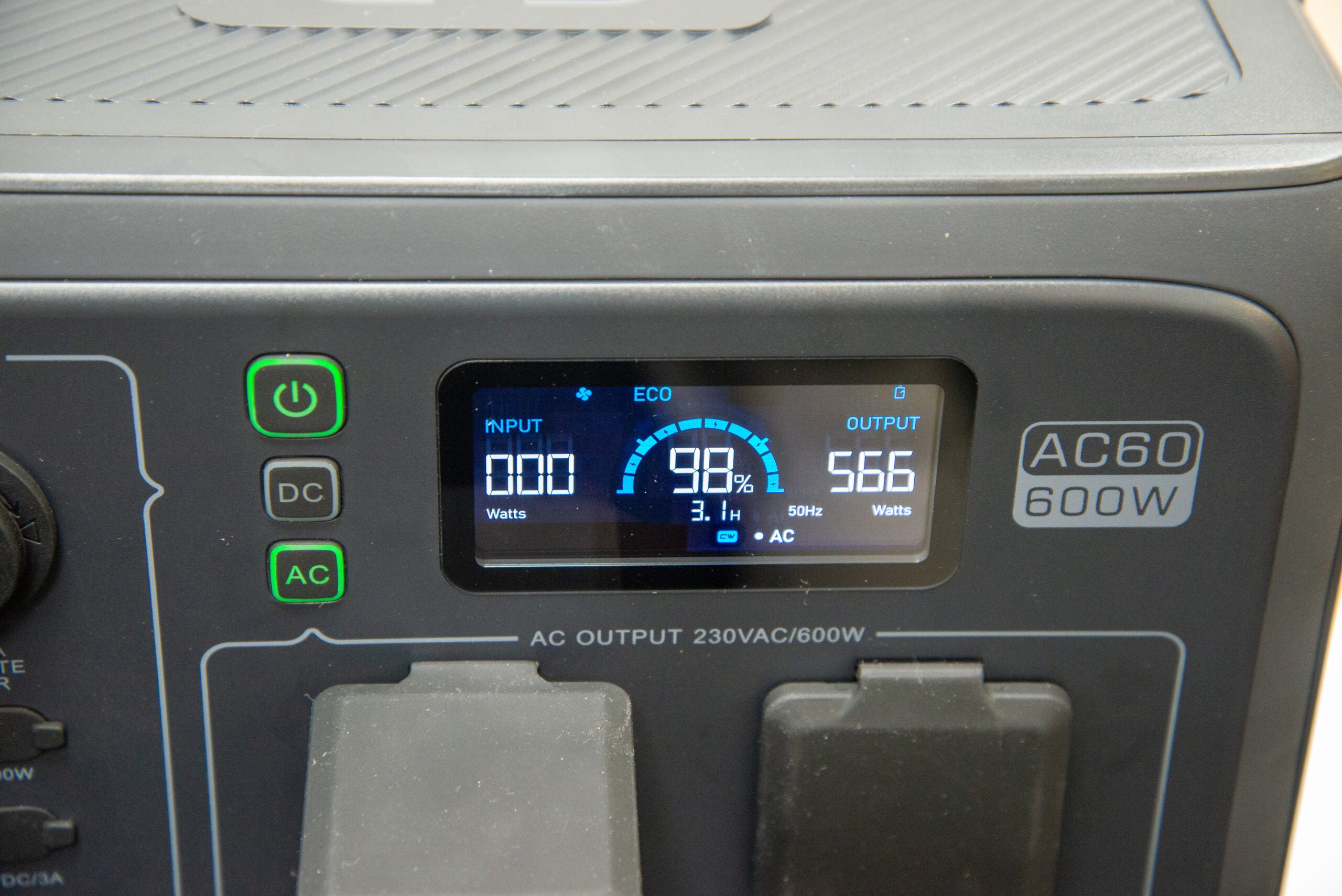
On its default settings, the Bluetti AC60 can handle anything up to 600W, which covers most portable projectors, laptop chargers and portable lamps. Stick on Power Lift mode, and I found that I could run an electric heater (although not for particularly long). If you need more power output, then you will need a larger system.
Using LiFePo4 batteries, Bluettie says that the AC60 can last for 3000 cycles until it hits 80% capacity. Assuming that these 3000 cycles deliver a total storage capacity of 1,209kWh, that means that it costs roughly 53p per kWh to store a kWh of electricity. That’s a little higher than the higher-capacity competition, but not bad.
Remember, the AC60 will continue to store power after 3000 cycles, just that total capacity will continue to decline.
Latest deals
Should you buy it?
You want flexibility and efficiency: This system is relatively compact but can be expanded to over 2kWh, and it proved efficient in my tests.
You need more power and more charge cycles: If you’ve got higher power requirements on the move, then there are systems with bigger batteries.
Final Thoughts
Getting the right power station is about balancing price, specs and features. Opt for a larger system, such as the Dabbsson DBS2300 and you’ll get more power and a cheaper per-kWh price. However, the DBS2300 is a lot more expensive to buy and a lot heavier. What you get with the Bluetti AC60 is efficient power output, expandable capacity, a good starting price and a relatively small form factor. Where flexibility is of the essence, this is a great choice.
How we test
We test every battery station we review thoroughly over an extended period of time. We use standard tests to compare features properly. We’ll always tell you what we find. We never, ever, accept money to review a product.
Find out more about how we test in our ethics policy.
We test with a variety of devices to see how long the battery will last.
We test different charging methods to see how quickly the battery can be topped up.
FAQs
It can take up to two additional 806Wh batteries.
It can output up to 600W of AC power on standard mode and 1200W with Power Lifting turned on.

